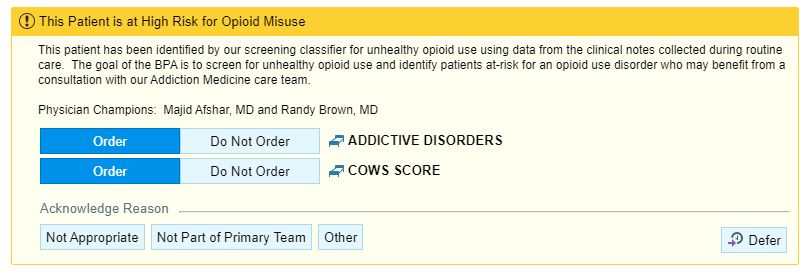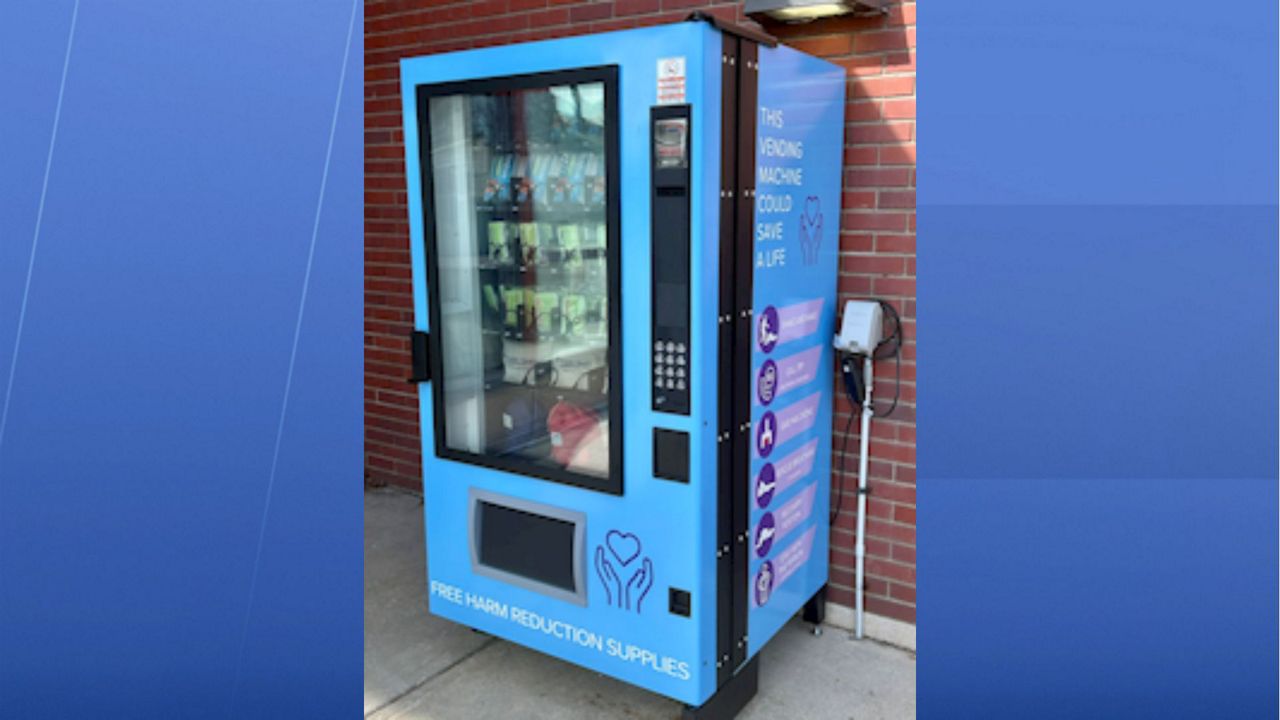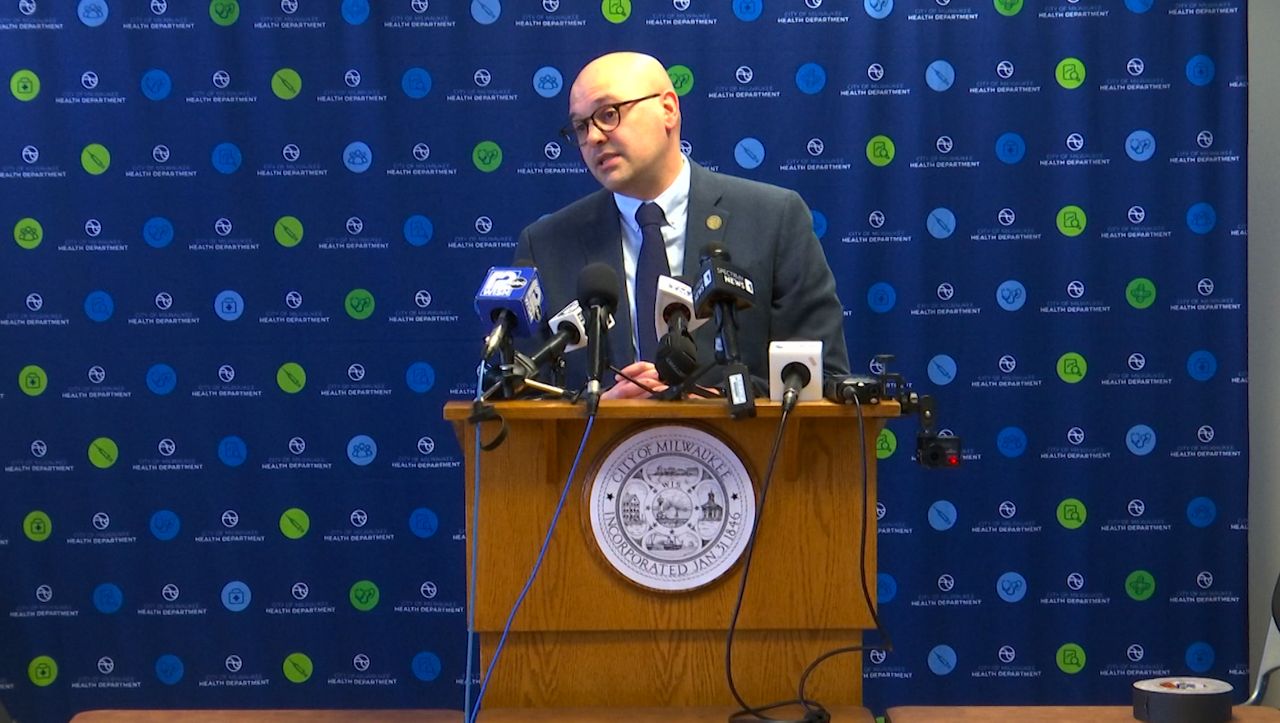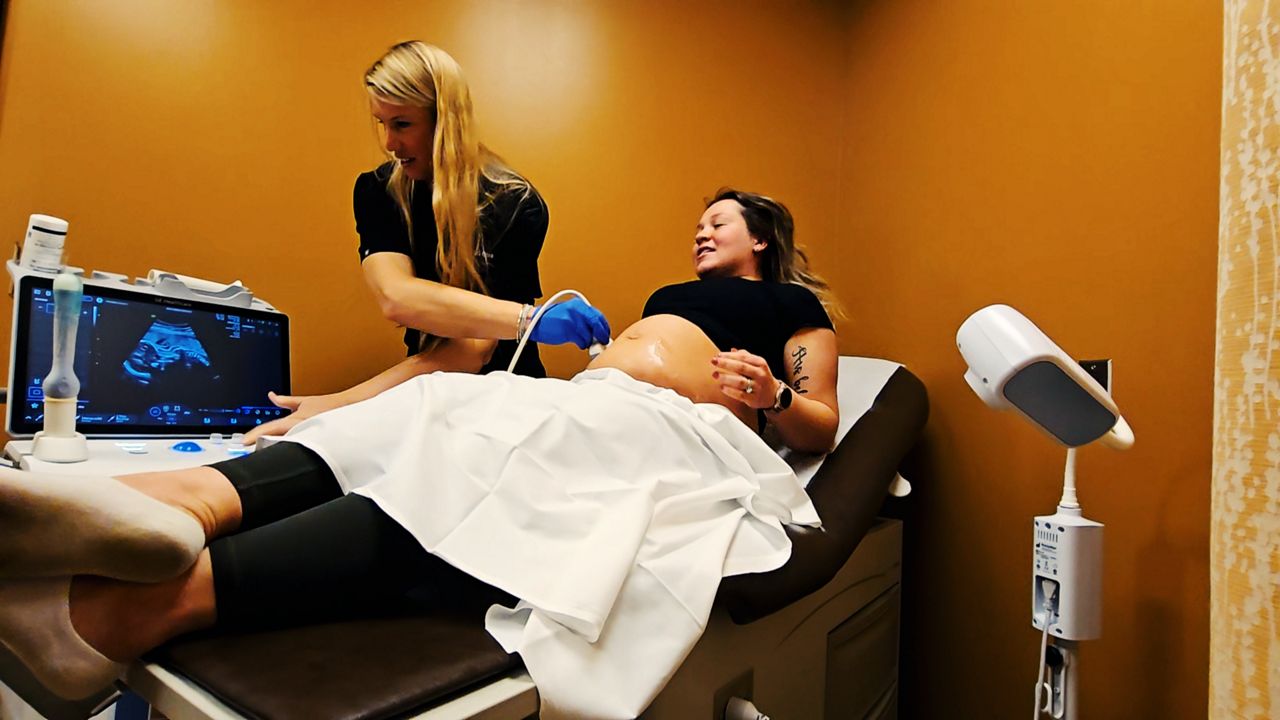MADISON, Wis. — Researchers at the University of Wisconsin-Madison's School of Medicine and Public Health have developed an artificial intelligence-driven tool to identify hospital patients at risk of opioid use disorder.
The AI tool looks for patterns in a patient’s electronic health records that might indicate a higher risk of opioid use disorder. Once the AI identifies a heightened risk, it sends a notification to medical staff recommending the patient be referred to inpatient addiction specialists.

“Our study represents one of the first demonstrations of an AI screening tool embedded into addiction medicine and hospital workflows, highlighting the pragmatism and real-world promise of this approach,” Dr. Majid Afshar, the study’s lead author, said.
The researchers said the AI is just as effective as medical staff at spotting this risk, with 1.51% of hospitalized adults receiving an addiction consultation, compared to 1.35% before the AI tool was used.
They also noticed a 47% decrease in hospital readmissions when patients received an addiction consultation recommended by the AI tool compared to hospital staff-initiated consultations. They said this decrease in readmissions saved nearly $109,000 in health care costs.
The researchers said they hope additional research will continue that looks at how this technology can be applied to health care.
“This study lays the groundwork for broader adoption of electronic-health-record-embedded AI screeners for opioid use disorder,” Afshar said.











